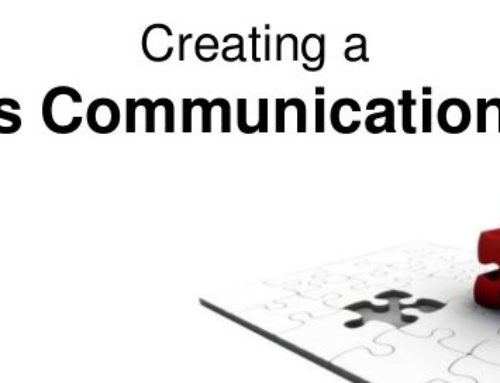You know, I think I’ll write a book someday…
Every now and again I hear someone comment about his or her desire to write a book. Years ago as I wandered through bookstores I would browse through the shelves and imagine what it would be like to actually produce a completed manuscript from nothing other than whatever your mind could conger up – be it fiction or non-fiction, something interesting and intriguing enough for those who pick it up to become lost in its pages for hours on end.
When I finally got serious about the prospect of writing my memoir, I began researching the process. A friend who is also writing her first book, directed me to a self-publishing website. It’s a good avenue for some but I quickly discovered that self-publishing is not the way to go if you’re going to be taken seriously by the publishing community. Next, I discovered you needed to find an agent who will represent you and present your works to publishers so you can get the best possible deal. It’s not necessary to even have an agent. Denver Broncos Quarterback Tim Tebow and Senator-elect Rand Paul recently signed book deals without agent representation, but unless you’re a major celebrity or have a huge platform, most authors need someone to go to bat for them. I fall in the latter category.
So, how do you find an agent? My first recommendation is to buy and read comparable books to the one you are writing and find out who represented those authors. Many agents cover several genres (types of books, i.e. biography, business, young adult, memoir, etc.), but you’ll find the most successful agents specialize in certain areas within fiction and non-fiction categories. Since I’m writing a memoir, I needed an agent who represented writers that had penned successful memoirs and had the right contacts at specific publishers who would seriously consider my work. The first agent I contacted and the first to turn me down, did so in a very polite manner but thought my story was compelling enough to be published and gave me some good advice on websites I needed to subscribe to or use as resources to locate agents who may be interested my work. A few I would recommend are http://publishermarkplace.com, http://quearytracker.com and http://agencyquery.com.
Once you’ve identified several successful agents who represent the type of book you are writing, you need to “query” them. What in the world is a “query”, I asked? In short, it’s a single page cover letter introducing you and your book – nothing more, nothing less. It’s not a rambling saga of your great, or not so great life or why you’re the next John Grisham or Pat Conroy. A good query letter is what’s going to get an agent’s attention –similar to the impression you make within the first 30 seconds of a face-to-face encounter. A query letter is meant to elicit an invitation to send sample chapters or even the whole manuscript to the agent. It’s not meant to show off how cute and snazzy you can be by breaking formatting rules and going against the grain. Keep it simple. Stick to three paragraphs. The goal is to get the agent to read your proposal or manuscript, not to blow you off because you messed up the introduction.
Here are four components I would make sure you get right when you query:
1) Go to the agents website and follow their submission requirements to the tee. First and foremost, they want to make sure you can read and follow directions. After all, you are writing a book and they expect you to be able to read too.
2) Use their name in the salutation. “Dear Agent” or “To Whom It May Concern” will not get their attention. Tell them why they are the right agent for you and why your story is right for them.
3) Use your best lines (your hook) at the beginning of the letter, hopefully in the first paragraph. Successful agents receive tons of these letters. Why should they read yours?
4) Once you send your letter and possibly your proposal or sample chapters (depending on what they ask for on their submission page), then sit back and wait for their response. Yes, I didn’t like this part either since I communicate and sell myself well on the phone and in person. But the reality is agents would never have time to be agents if they took even a small percentage of the calls they receive. Sometimes you’ll receive a polite “no thank you”, “it’s not a fit for what were are looking for”, and many times you’ll never hear from them. Just stay focused and keep trying.
If the agent or agency is interested, they’ll contact you and ask for your proposal or sample chapters. If you’re writing fiction, you need to have your manuscript complete prior to seeking an agent. Although there are varying opinions whether non-fiction authors need to have a completed manuscript, I found that’s not necessarily the case, however, I would recommend have your proposal and a few chapters ready to go just in case they want to see your work; and unless you have a super story or huge platform, they will want to see your work. I’ll write more about this later. And when they do express interest, my advice is to talk to the agent who will potentially represent you. I want to know they’re interested in my story and will sell it to the best of their ability. I also want them to know how motivated I am and that I’m willing to heavily market and promote the book when it’s eventually released. Believe me, that’s what they want to hear because it makes their job much easier when they talk with their publishing contacts and editors.
How long did it take me to find an agent? I queried a total of 63 agents. 48 never replied or politely said my manuscript wasn’t a good fit for them, 15 expressed interest, five offered me representation and I ultimately selected and signed with someone who is one of top agents in New York and feel fortunate to be represented by someone of their caliber. When published authors see these numbers, they are impressed with how quickly I got an agent offer. Some of the greatest writers in the world received hundreds of rejections prior to having their work published. For example, William Gay, who in my opinion is one of the south’s outstanding fiction writers, told me it took him over two years and numerous published short stories before he found an agent. Wow, I really do feel lucky.
While it many seem glamorous, writing is manual labor and hard work, but for most writers, it’s a labor of love. In the next few days I’ll write more about the proposal process and what I’ve learned in the very early stages of my writing career. In the meantime, have a wonderful week and go buy plenty of books for those on your Christmas list.





